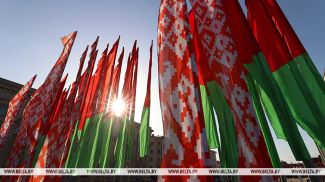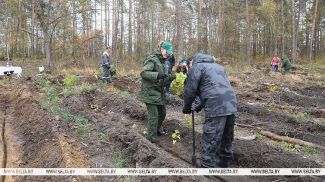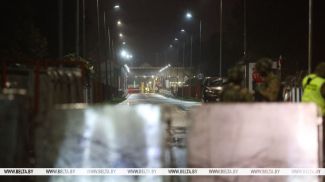MINSK, 18 March (BelTA) – The Peace of Riga divided Belarusian people into two parts, Rector of the Academy of Public Administration under the Aegis of the President of the Republic of Belarus Vyacheslav Danilovich said as he took part in a meeting of the Expert Community project in BelTA's press center to discuss the impact and consequences of the Peace of Riga for Belarusian people.
“The Peace of Riga is a tragic page in the history of Belarus. Our people were divided into two parts. The western regions of Belarus were part of Poland for almost 20 years. For Belarusians, the reunification of our people in the autumn of 1939 is an act of historical justice. It means a lot to us: if not for this, it is unclear how Belarus would have looked like now. Half of our people could have simply been assimilated, because in the interwar period the Polish authorities pursued a policy of Polonization on the territory of Western Belarus, which could have resulted in a much bigger number of so-called Orthodox Poles in Poland now,” he said.
According to him, this event had far-reaching consequences that are felt to this very day. “We see that the Polish ruling elites have embarked on confrontation causing strife over historical memory of Belarusian and Polish peoples. There is a policy of glorifying those who committed the genocide of Belarusian people in Bialystok Region that became part of Poland in 1944 and in the western part of the BSSR where the so-called ‘cursed soldiers' turned to banditry, and some actually took part in ethnic cleansing campaigns. These things are unacceptable. Therefore, we strongly oppose this and should make our voice heard on these events, we should show why this is unacceptable for us,” he said.
The conference is held by the Institute of History of the National Academy of Sciences jointly with the Academy of Public Administration under the Aegis of the President of the Republic of Belarus. The country's leading scientists will deliver over 40 reports on 18-19 March. They will discuss the fate of the Belarusian statehood under the geopolitical challenges of 1918-1923, the Polish-Soviet War of 1919-1921 and assess the role of the Peace of Riga in the fate of Belarusian people.













